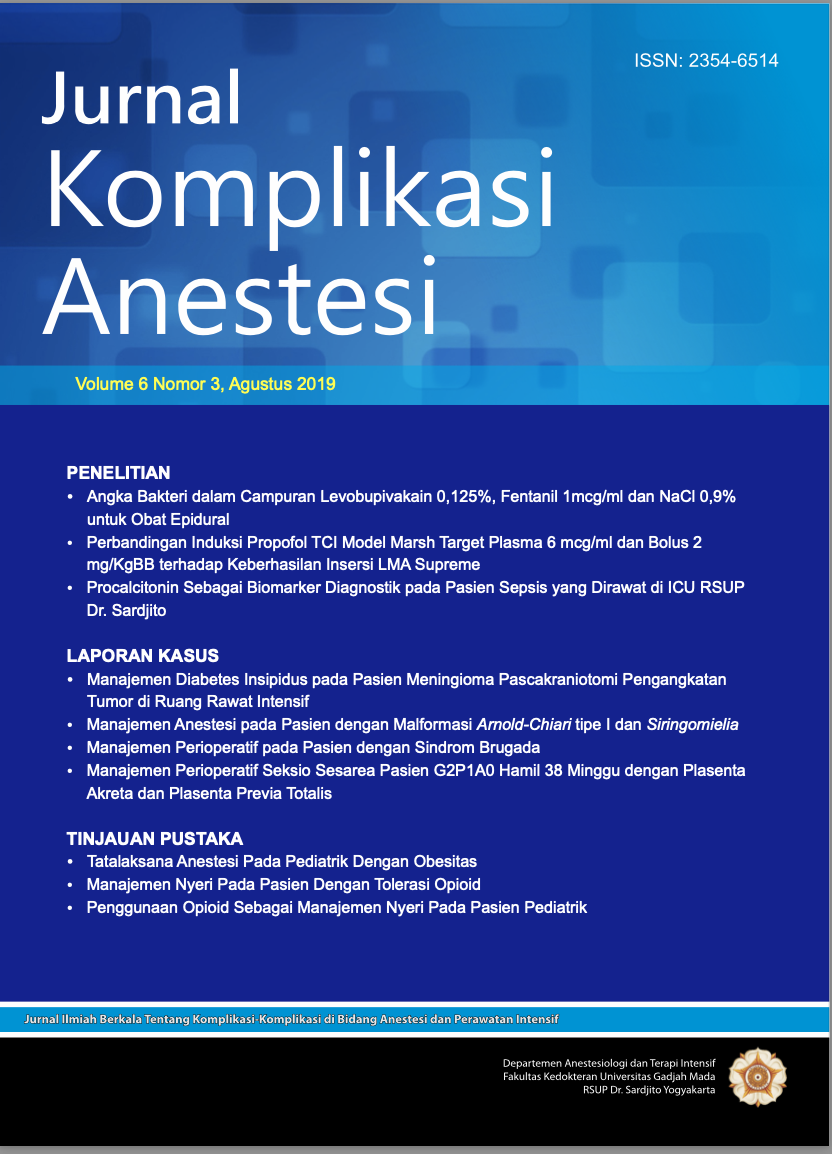Manajemen Nyeri pada Pasien dengan Toleransi Opioid
Abstract
The number of patients prescribed opioids has grown rapidly over the last decade. The burden of chronic pain is more widely recognized and there has been an increase in the use of opioid for both cancer and non-cancer pain. As a result, the proportion of opioid-tolerant requiring acute pain management has increased, often presenting clinicians with greater challenges than those faced when treating the opioid naïve. The aims of opioid treatment include effective relief of acute pain, prevention of drug withdrawal, assistance with any related social, psychiatric and behavioural issues and ensuring continuity of long-term care. Pharmacological approaches incorporate the continuation of usual medication, short term use of sometimes much higher than average dose of additional opioid, and prescription of non-opioid and adjuvant drugs, aiming to improve pain relief and attenuate opioid tolerance and opioid induced hyperalgesia.

Copyright (c) 2019 Mahmud, Sudadi, Dika Rezkiawan Rezkiawan

This work is licensed under a Creative Commons Attribution-NonCommercial-ShareAlike 4.0 International License.
The Contributor and the company/institution agree that all copies of the Final Published
Version or any part thereof distributed or posted by them in print or electronic format as permitted herein will include the notice of copyright as stipulated in the Journal and a full citation to the Journal.
















